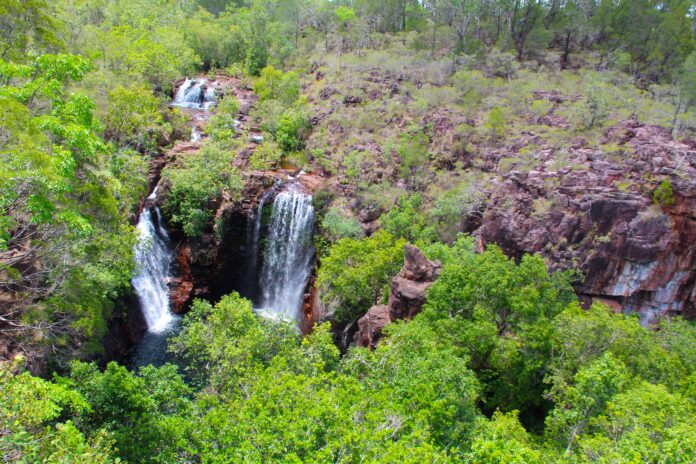“Now you’re a real Darwinite, mate – sweating your arse off and having a laksa for breakfast.”
The overheard conversation at Darwin’s Parap Markets – eight minutes’ drive north of the Darwin CBD – last Saturday morning said it all.
While the rest of us might choose the classic South-East Asian spicy noodle soup off a dinner menu at our favourite Thai or Malay restaurant, market-goers line up before the 8am official opening time at stalls such as Mary’s Laksa, somewhat of an institution at Parap.
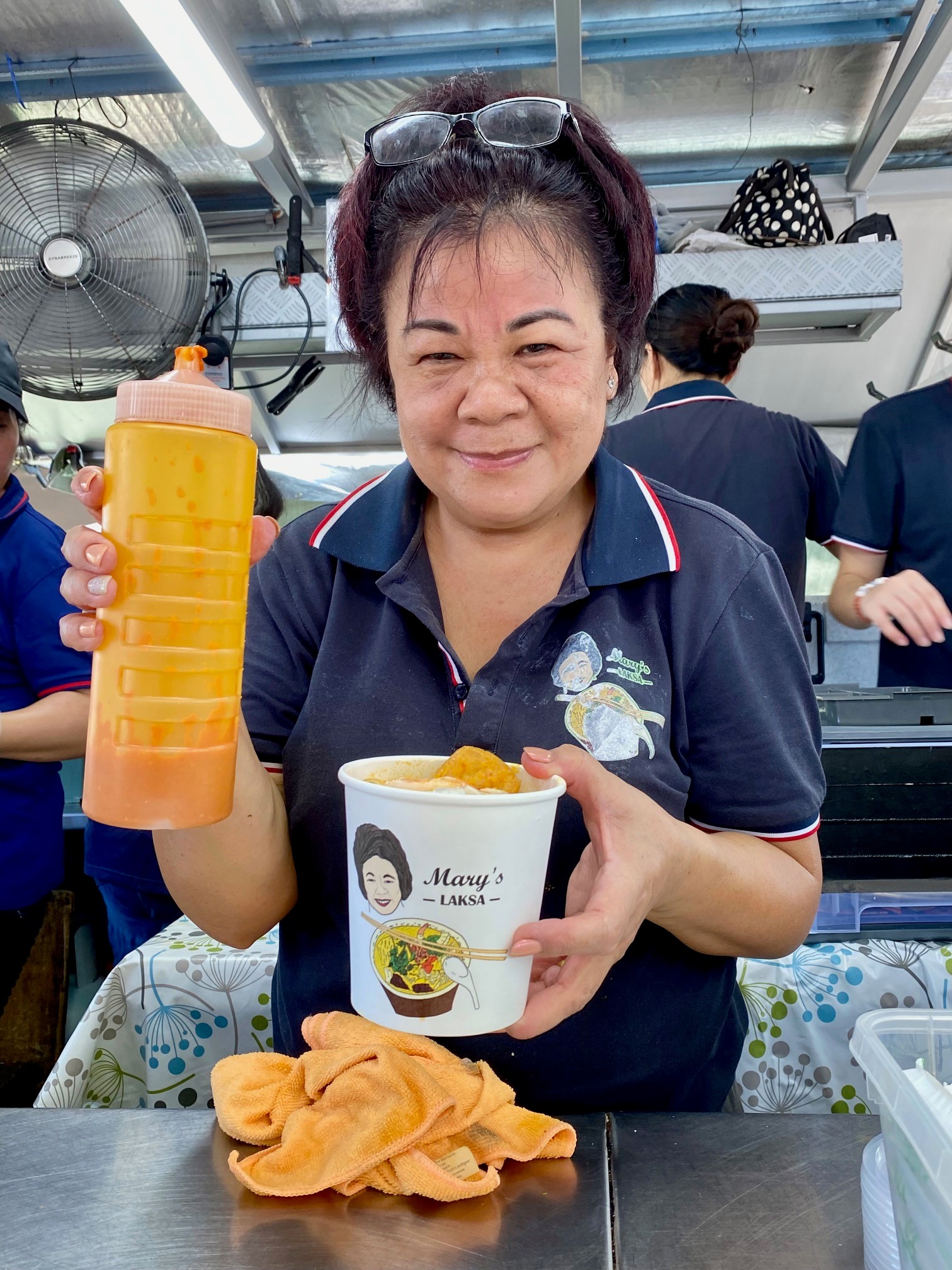
Like the current Tourism NT campaign slogan, it’s summer done differently (I can now attest to Mary’s seafood laksa as a delicious kickstart to the day) and just another part of my wet season education.
In the past, I may have baulked at the thought of visiting the Top End from November to April, when the weather can be, well, intense.
Scroll down to SUBSCRIBE for our FREE news feed, direct to your inbox daily.
Temperatures usually range from 25C to 33C on average and the humidity can melt my face makeup into a Jackson Pollock painting.
Rain, in some parts, is measured in metres and sides of roads can become ‘raging rivers’.
But Territorians revel in being at the mercy of Mother Nature. And even in what is known as the tropical summer (the Territory’s off-peak tourist season), the Top End is dripping with adventure.
The waterfalls, rivers, creeks and swimming holes are at their finest because of those tropical storms and monsoonal rains. Nature blooms as bright as orange-red poinciana flowers.
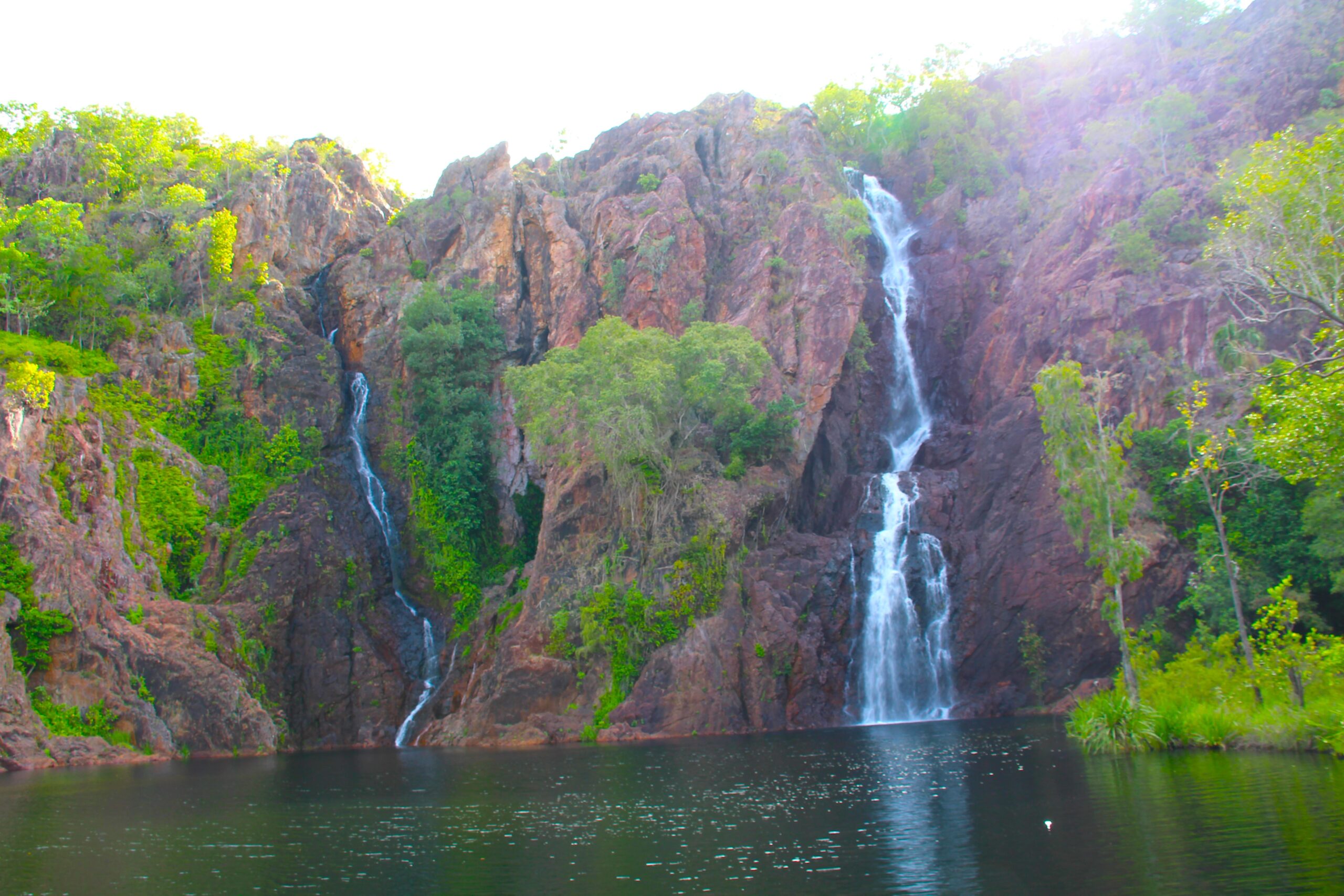
And the abundant wildlife is at its most active – including male bower birds, which turn architects at this time of year, building intricate, mini gunyah-like structures at ground level to attract a mate.
Certainly, there’s no crowds. So, the highly Instagrammable photos – like those beside the vibrant Austin Lane street art in Darwin City – can be snapped without extra arms, legs and heads.
Little traffic translates into abundant car parks outside Parliament House for an iced latte at the Speaker’s Corner Cafe or at tourist hotspots such as The Jetty – part of Stokes Hill Wharf’s renowned restaurant scene.
January is the wettest month (almost 318mm on average) but locals say you can set a clock by the tropical rain showers, while the storms provide a free light show to behold (Darwin is the most lightning-prone capital in Australia).
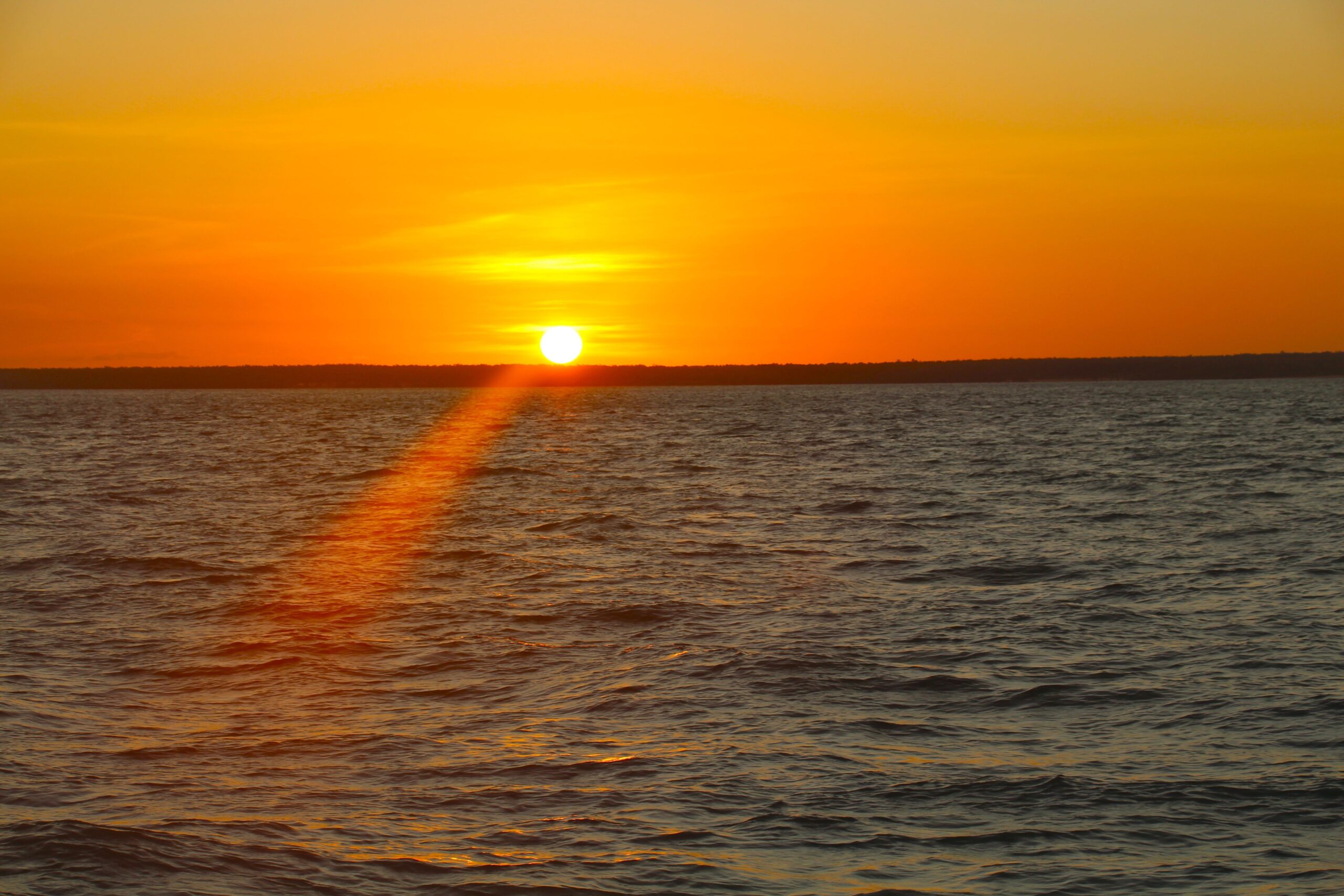
The sunsets – best viewed from the golden sands of Mindil Beach, the shaded tables at Darwin Ski Club on Vesteys Beach and on a Sail Darwin Champagne Sunset Harbour Cruise – turn the sky from rivers of gold to fairy floss pink, cornflour blue and amethyst purple.
Our four nights and three days of touring, following Bonza’s inaugural flight from Sunshine Coast Airport to Darwin International late on November 29, landed us smack-bang in the middle of the sweaty, pre-tropical summer conditions that the locals call ‘the build-up’.
These are pressure cooker days and nights: soaring humidity can create sauna-like conditions. But in the Territory, you’re only ever a dial away from ‘arctic’ air-conditioning and swift-rotating fans. You can hot-foot it through the doors of any attraction – as we did at Northern Centre for Contemporary Art and The Local, an artist-run retail space behind the Parap Markets – and feel instant relief.
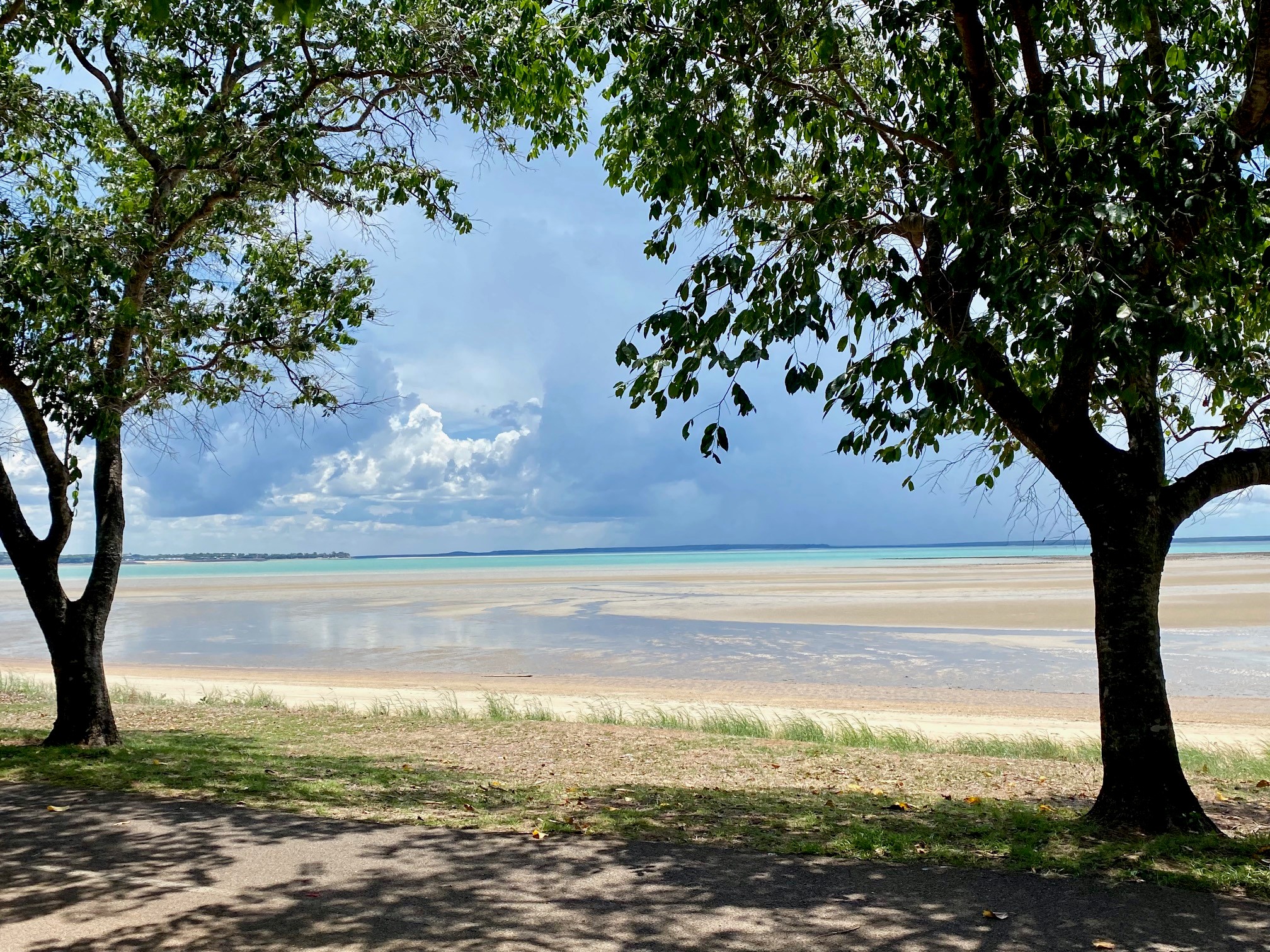
Or sit in the shade of a palm, pandanus or poinciana tree – perhaps at East Point Reserve –that can make a 10C to 15C difference. Darwin Waterfront’s Wave Lagoon and Aqua Park and waterside restaurants such as Snapper Rocks (with its cold green papaya salad) offer more cool ways to beat the heat.
When all else fails, One Mile craft beer brews such as RDO (‘rostered day off’) and 4:21 (the time government workers clock off in the NT) or a Darwin Distilling Co Tropical Monsoon gin with an ice cube or tonic water always does the trick.
But I reckon you can’t beat scrambling over the slippery rock shelf, taking that first dive into an upper pool, and having a back massage while lolling under the gentle champagne cascades at Buley Rockhole in Litchfield National Park.
Even on a stinking hot day under clear blue skies this month, Buleys’ small and deep plunge pools and shallow waterholes barely attracted more than a dozen people on the day hubbie and I visited with Ethical Adventures.
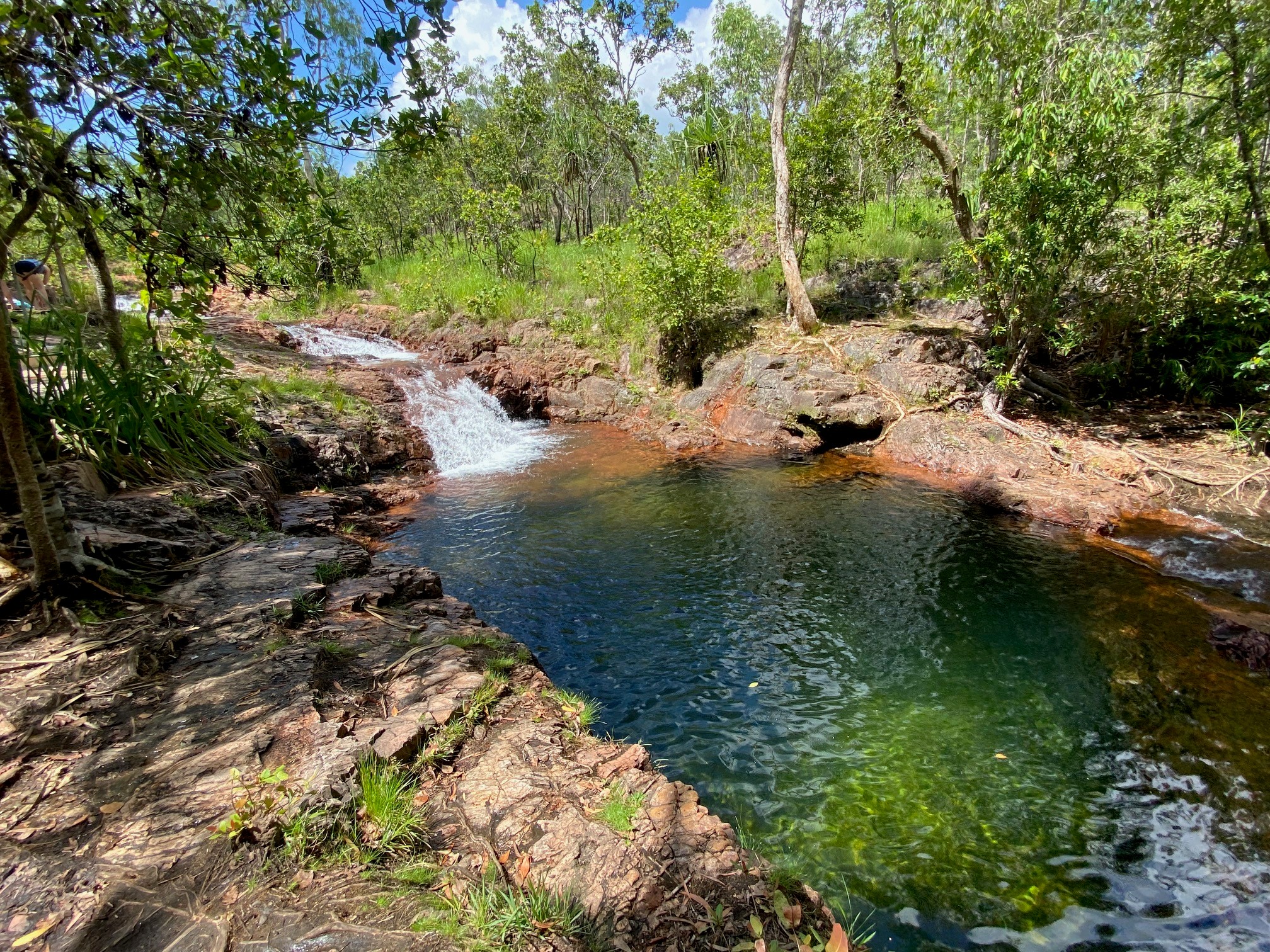
The company aims to foster a deeper connection and respect for the Northern Territory’s spectacular scenery, natural habitats and local cultures while also helping to preserve and protect the natural environment for generations to come.
And knowledgeable tour guide Darryl Connor certainly endeared the 1500sq km national park to us all over again after a 27-year absence.
With no other tour guests, the itinerary on the 400km round trip from Darwin could be adapted to what hubbie and I wanted to see, our fitness levels during the day and Darryl’s suggested highlights: Wangi, Tolmer and Florence falls.
High on our list of must-sees was the park’s hundreds of fascinating engineering marvels: the termite mounds. Built with mud, plant parts, and termite saliva and faeces, these structures act like a tropical summer ‘holiday home’ for the termites that are all blind and deaf.
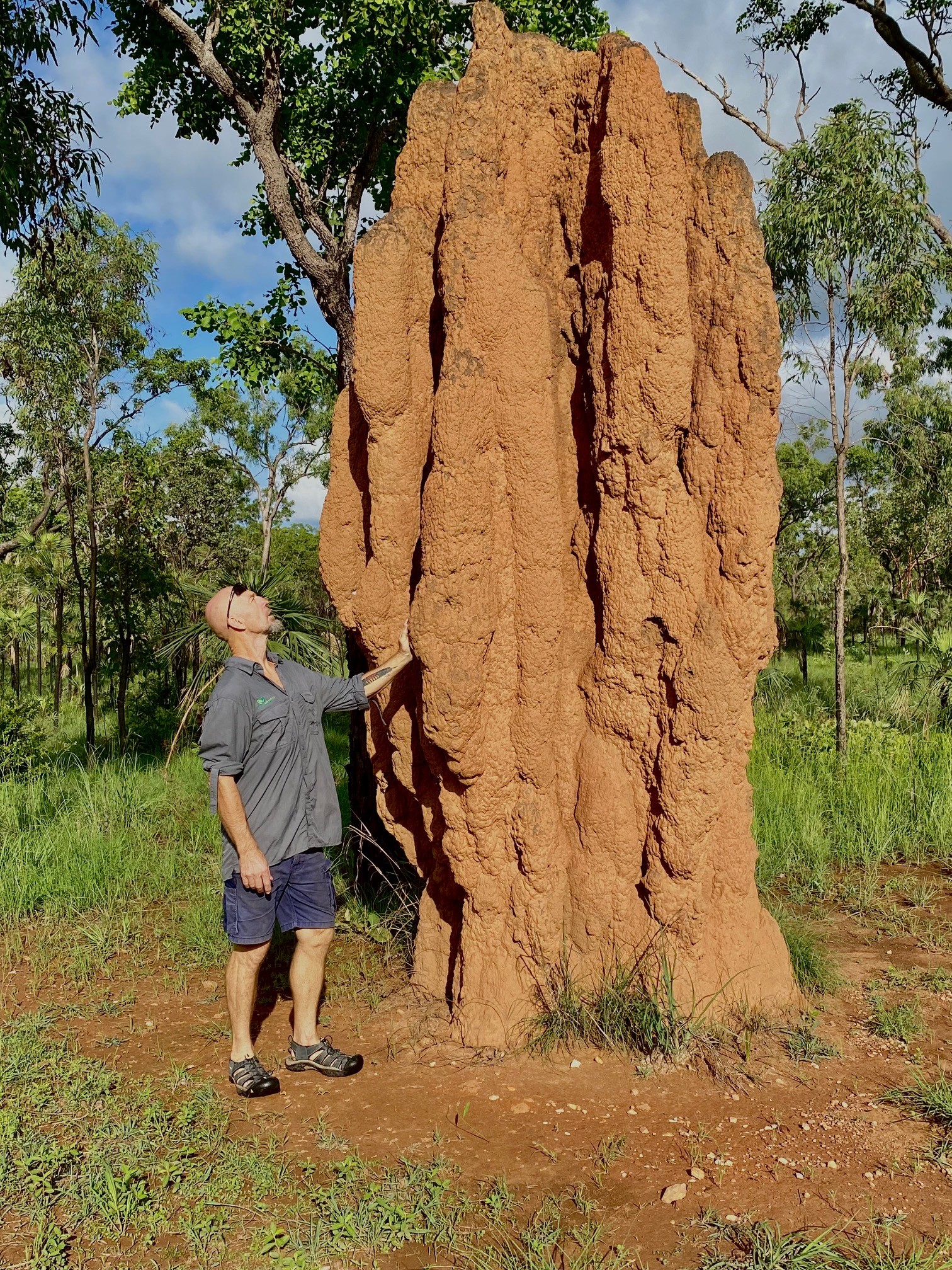
Waterproof, fire-proof and as hard as concrete, the mounds have a honeycomb-like structure inside and can run for a kilometre in any direction underground to house the critters, which bring in spear grass for food. Each mound has its own soldier and worker termites as well as one queen, living two-thirds the way up the mound and laying 800 eggs a day.
On a side road, we made our first tour stop at a huge cathedral mound with its central ‘chimney’ that the termites fly out from at night. As the termites forage from underground, the mounds push ever skywards – up to eight metres high.
Later, a horseshoe-shaped boardwalk took us around the magnetic mounds – the two-metre high, elongated wedges that look like graveyard tombstones. They are positioned north to south like a compass to regulate an optimal 22C despite harsh weather conditions outside.
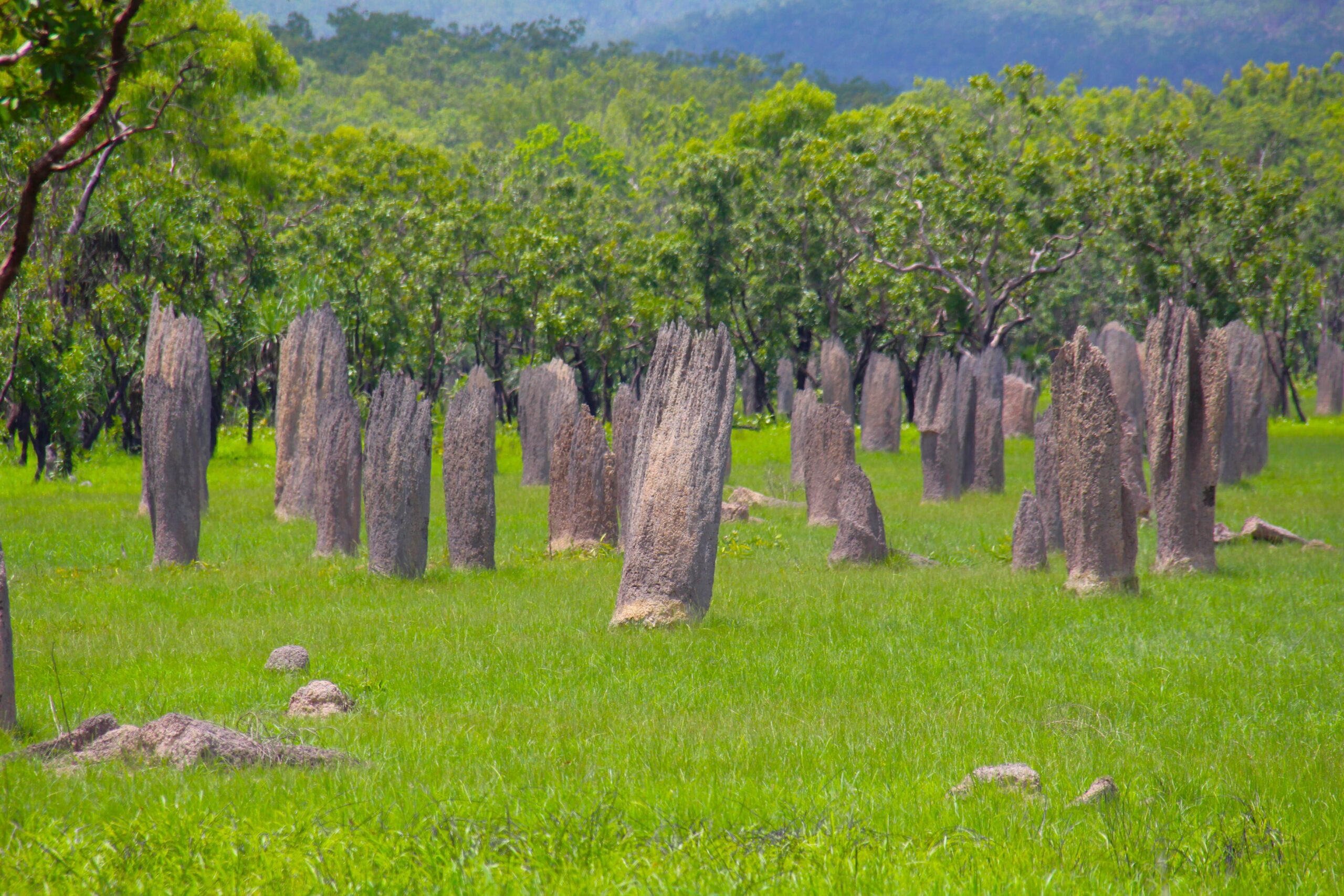
The park also is home to 280 bird species, more than 60 varieties of freshwater fish, 36 land snakes including seven of the top 10-deadliest in the world (thankfully, only coming out in the ‘cool’ of the night).
Like the tour, our short getaway to Darwin was quite an education and gave us a whole new perspective on tropical summers in the Top End.
And we never had a drop of rain the whole time.
MORE TROPICAL SUMMER TIPS
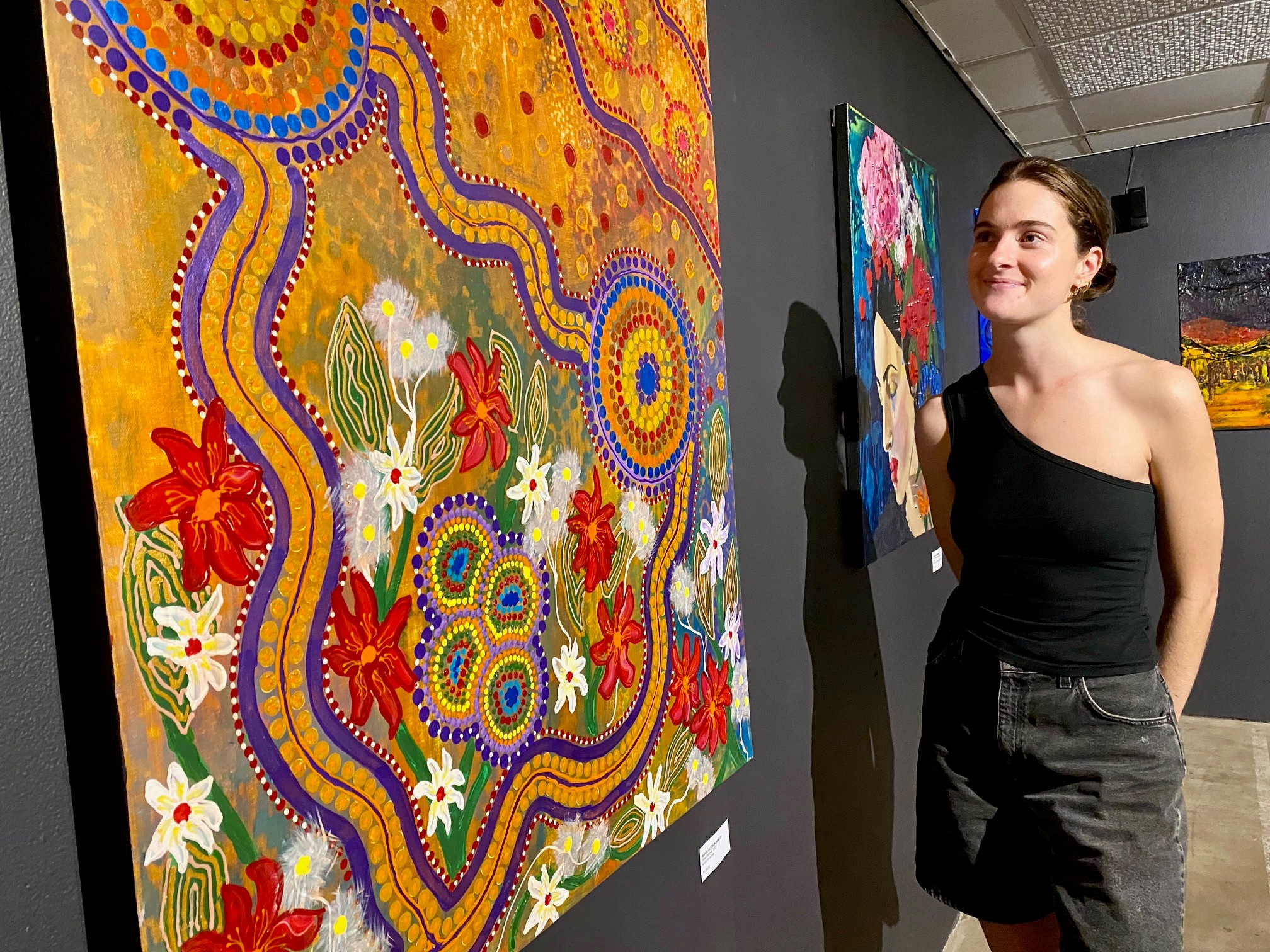
When in Darwin, do as the Darwinites do:
- Get up early and stay out late to make the most of the coolest parts of the day. December temperatures can range between 25 and 33C. Smart locals take a ‘siesta’ in the middle of the day or stay indoors with air-conditioning and fans.
- Be sun smart. Wear wide-brimmed hats and breathable cotton clothing, including long-sleeved shirts. Re-apply sunscreen throughout the day, find shade wherever possible and drink a litre of water an hour when outdoors to rehydrate.
- Call ahead or go online to ensure the tourist business hasn’t closed for a summer holiday or has new operating times. The bonus is that you may find yourself on a ‘private tour’ with the undivided attention of a knowledgeable guide, with the best table in the house at a popular Darwin eatery or served by a bar attendant with time to impart local tips on where to go and what to do.
- For all you need to know about Litchfield National Park, visit the website. Read the official signs and adhere to advice at waterholes, creeks and rivers, where crocs may be more active.
DOING DARWIN IS NOW MUCH EASIER
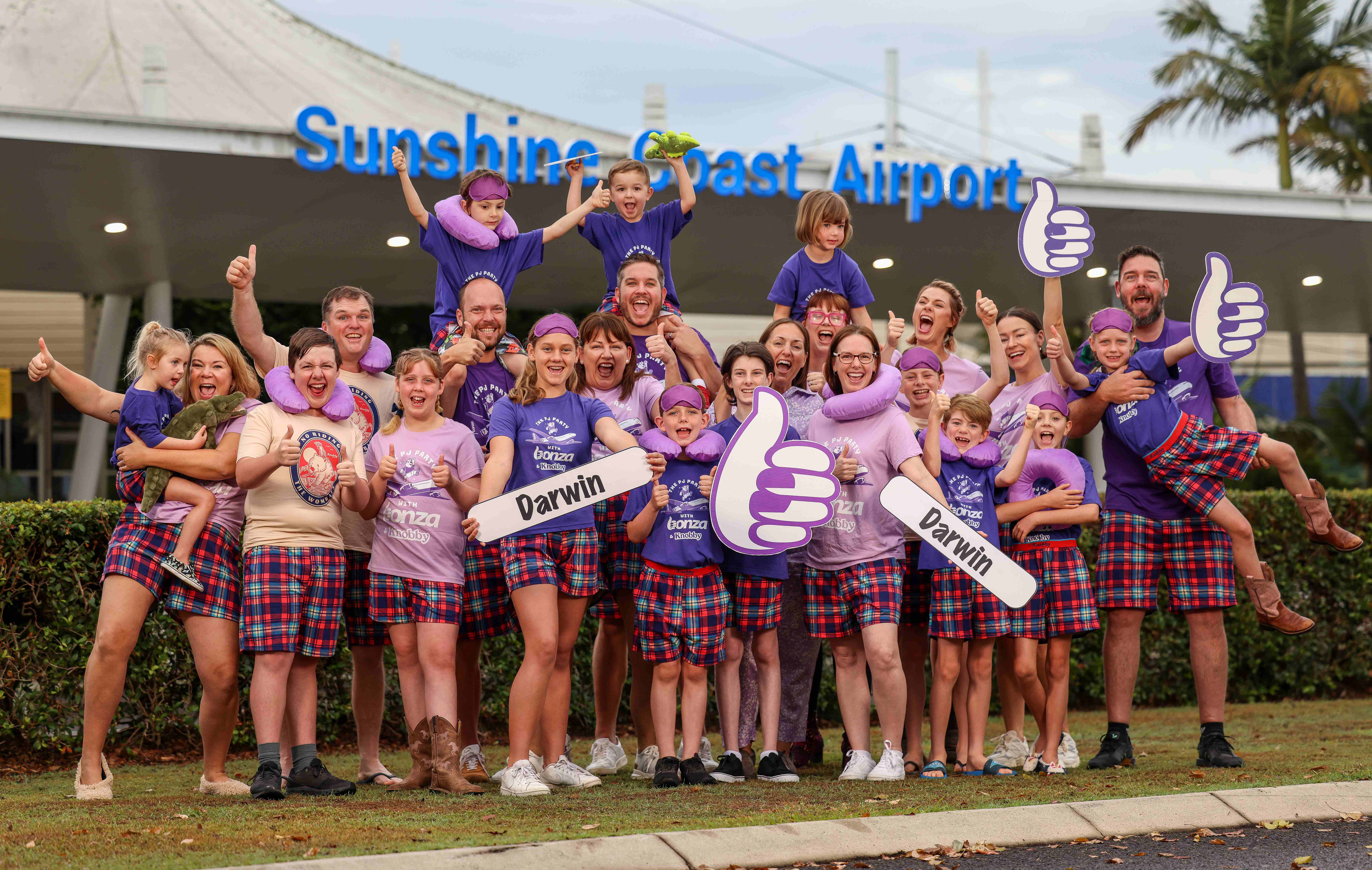
Bonza brings all the Top End action closer, with the four-and-a-half-hour AB645 flight between Sunshine Coast and Darwin International airports that arrives about 11.30pm.
The new direct route connects the two tourism powerhouses for the first time, opening up celebrated national parks including Litchfield and Kakadu, tourist attractions such as the Darwin Waterfront’s Liquid Light show all this month, the cosmopolitan foodie scene with award-winning establishments like celebrity chef Jimmy Shu’s Hanuman, and the ancient and modern culture and history highlighted at the Museum and Art Gallery Northern Territory.
A complimentary two-minute shuttle bus (operating 24 hours) or eight-minute, 300m walk from the Bonza baggage carousel along the well-signposted path to the Novotel and Mercure Darwin Airport centralised reception means you can peel off the layers of stress and relax much quicker.
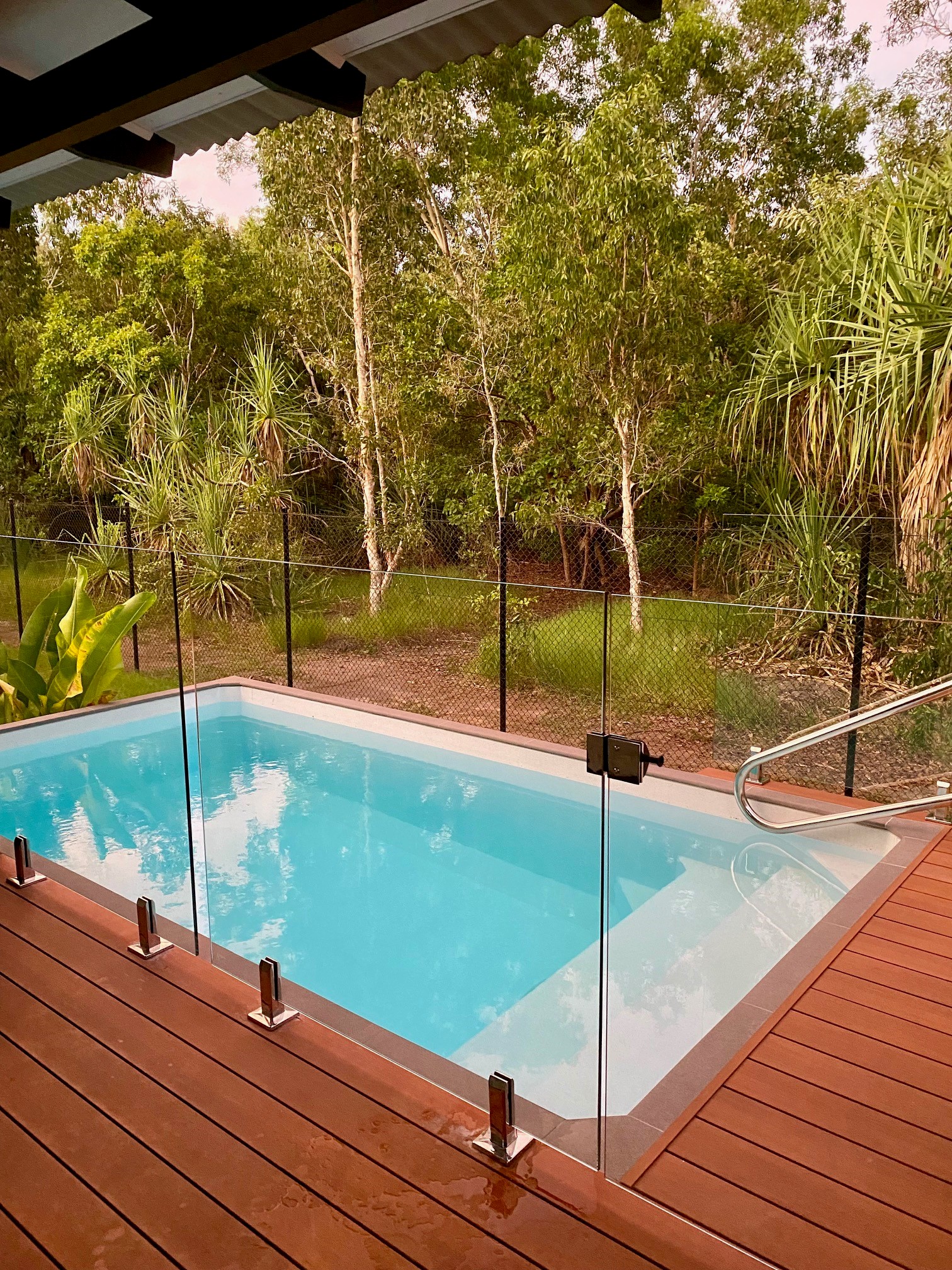
Choose to stay in the Tropical Pool Villas and you could fit in a sneaky midnight swim in your private plunge pool overlooking Rapid Creek Reserve or cool off under the bathroom rainhead shower before drifting off to sleep in the comfy king-size bed.
The 14 true-blue Aussie villas with their corrugated iron roof, tiled gable and back deck with overhead fan are big on tiny details – from multiple powerpoints for charging devices and full-length and makeup mirrors to complimentary Elemental Herbology botanical skincare products and QR code for in-room dining.
The Mercure has nine types of accommodation and the Novotel a further four, catering for a wide range of budgets and holiday experiences, but striking a balance of luxury, comfort and convenience.
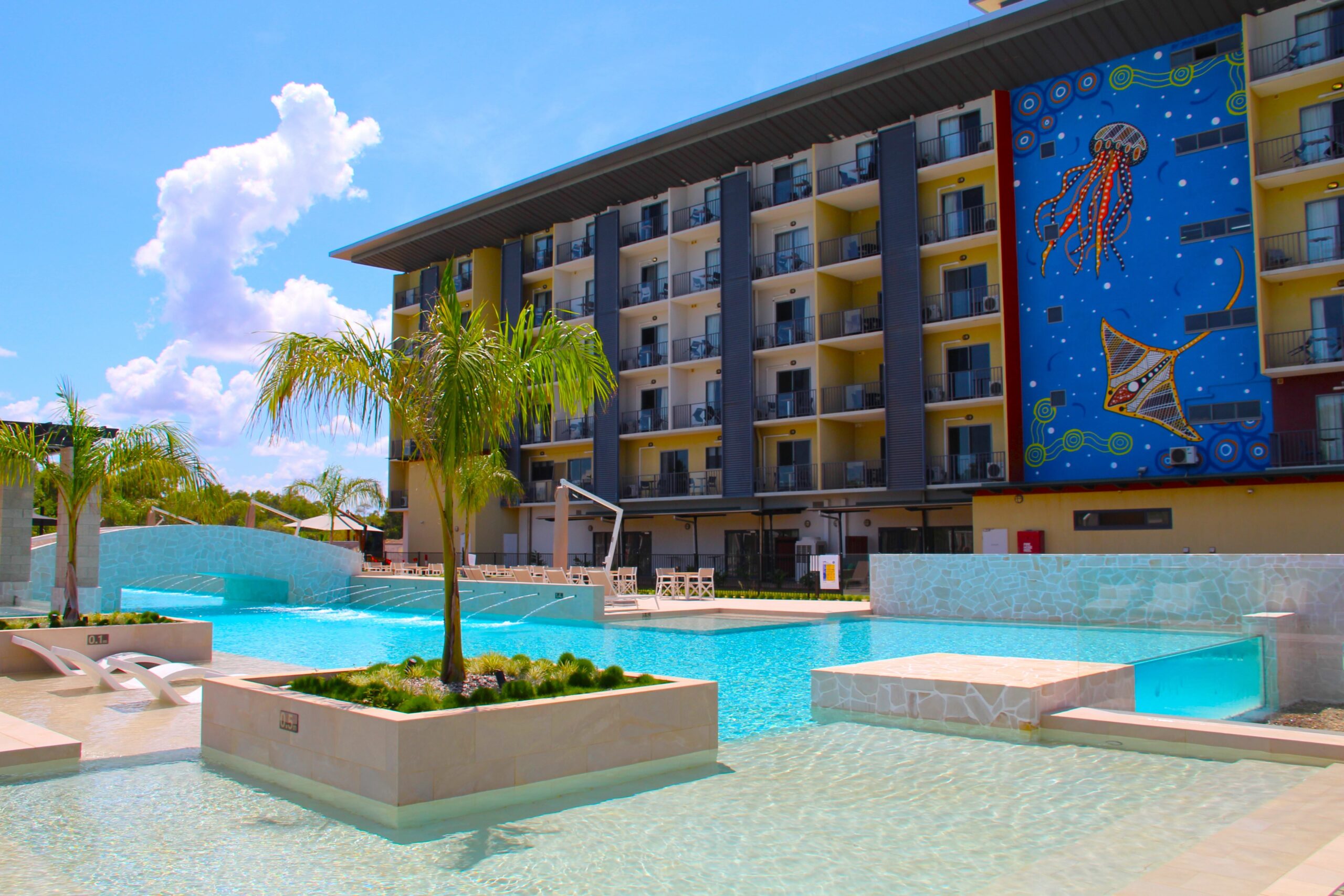
A $30million hospitality precinct, launched on December 5 and tying together the neighbouring Novotel and Mercure properties, creates a true ‘flop-and-drop’ destination. And you’ll hear more cicadas, bird calls and swaying palm leaves than any airport noise.
Apart from the ease of check-in/check-out for the two hotels, the new precinct boasts a 60m-plus, one million-litre pool – including a heated spa area with waterfall feature, three cabanas for guest use, children’s waterslide, bubblers and waterbucket drop plus accessibility ramp.
The adjoining Splash Cafe provides a fresh take on casual dining using local ingredients in its juices, wraps, salads and club sandwiches. A steakhouse/smokehouse restaurant is in the pipeline. Guests at Novotel and Mercure will have access to the entire property, including Cossies Poolside Bar and Bistro which will soon present an Asian fusion-style menu.
*The writer was a guest of Tourism NT, Bonza and Novotel and Mercure Darwin Airport Resort.
Like stories that inform, connect and celebrate the Sunshine Coast? So do we. Join an independent local news revolution by subscribing to our FREE daily news feed at the bottom of this article.


